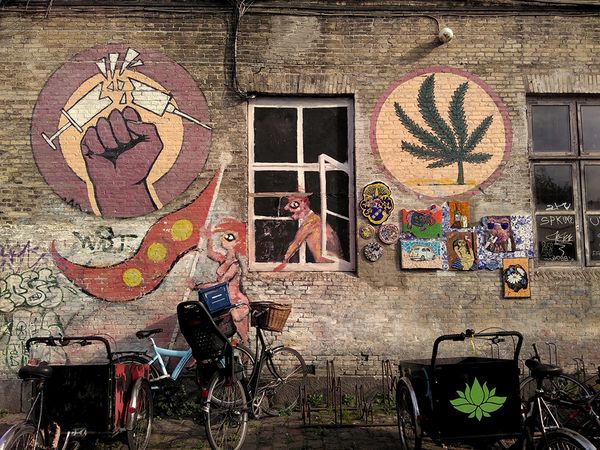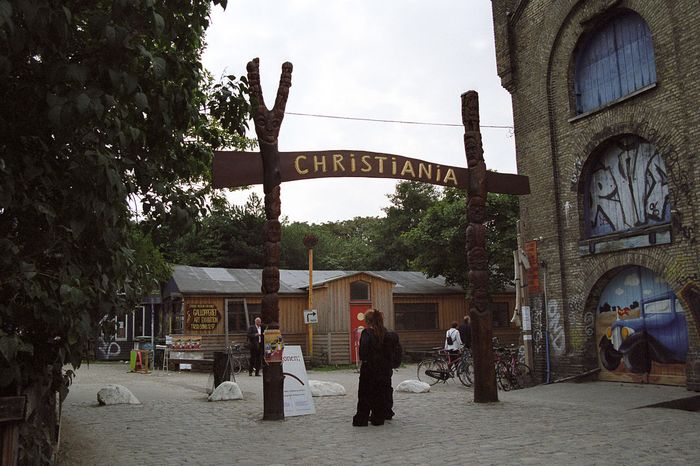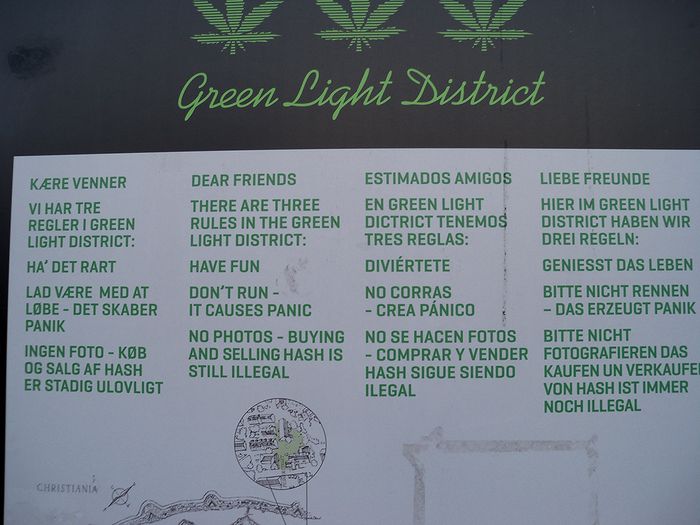- The City of Copenhagen has just submitted to Denmark's central authorities a proposal to regulate the legal sale of cannabis, in response to the increasing number of altercations between rival gangs seeking to control local trade in the neighbourhood of Christiania.
- The Scandinavian country recently approved the use of marijuana for therapeutic purposes, slated to go into effect in 2018.

Denmark is a country that has seen an on-going controversy about cannabis and its commercialisation. On the one hand, in the district of Christiania, situated in the centre of Copenhagen, cannabis has been sold and used, with the authorities taking a permissive stance. In the rest of the country, however, users face a restrictive law, and the authorities have been reluctant to give the green light to cannabis for therapeutic use. This is a scenario that has given rise to a complicated situation in the Scandinavian country, where most citizens and local authorities support the legalisation of recreational use, while the federal government continues to oppose it.
Now the City of Copenhagen has submitted a draft law to the central authorities proposing the legalisation of cannabis. It is actually the fourth time that the local administration has placed such a proposal on the table, after the Danish Executive's repeated refusals. On this occasion, the Government team in Copenhagen, headed up by Mayor Frank Jensen, insisted that action was necessary to put an end to the clashes amongst the rival groups jockeying to take control of the local cannabis market.
The leftist coalition of the Red-Green Alliance and the Liberal Alliance (LA), a libertarian group, believe that legalisation will prevent such events, which have intensified in recent months, exposing Copenhagen residents to great insecurity.
It would also prevent situations such as that which occurred at the end of August 2016, when a well-known drug dealer engaged in a shootout with the police when they attempted to arrest him. The incident ended with his death, while two policemen and a civilian were injured in Christiania.
Christiania, a free "city" that could no longer be so

The district of Christiania, just steps from the centre of Copenhagen, is one of the most famous places in the world for cannabis lovers. Founded in 1971 and famous for its status as a "free city," the sale of cannabis on its main artery, known as Pusher Street, has been a daily activity. However, recent events in the celebrated quarter have spurred the nearly 1,000 residents of Christiania, gathered in an assembly, to propose ending the centralisation of cannabis sale there. Area spokesperson Risenga Manghezi condemned the events. While stressing that Christiania continues to support the legalisation of the plant, he stated that the district could no longer concentrate the country's entire grass trade.
His words expressed great concern for the future of Christiania, created after the occupation of Army barracks there, and currently administrated by local residents through a model of self-government based on collectivity and cooperation. At first authorities tended to look the other way, ignoring trade at outdoor stands in Christiania. Over time, however, the locals decided to eradicate the sale of hard drugs to prevent conflicts and preserve the spirit of the neighbourhood.
In the wake of this recent wave of events, Christiania residents are taking another look at the commercialisation of cannabis. "We can eliminate the stands, but we cannot guarantee that they won't return. We need all of Denmark's help. "If you support Christiania, do not buy marijuana here," read a statement published after the recent incidents. The problem that the residents face is the emerging presence of organised groups fighting for control of the local cannabis trade. This is an issue that concerns the inhabitants, who are willing to sacrifice free access to cannabis to preserve the essence of the area.

Faced with this question, the Danish Government has limited itself to ratcheting up law enforcement in the area, which has not sat well with the community and the rest of the Danish people, most of whom believe that the solution to the problem is the legalisation of cannabis. There are several voices pointing out that restrictive policies will not put an end to crime in the area, but rather may have the opposite effect, while ruining a very unique place, Christiania, which receives half a million visitors each year.
Health, a priority for the Danish authorities
In the health sphere, the Danish authorities have had no choice but to heed their citizens' call for the use of cannabis for medical purposes. A year ago the country's government announced its use starting in 2018, when Danish doctors may prescribe cannabis to patients suffering serious health problems. This will allow patients suffering from the effects of chemotherapy, multiple sclerosis, chronic pain or damage to the spinal cord to legally obtain cannabis, under medical supervision. "The pilot project, which will begin on January 1, 2018, will allow some patients, who currently self-medicate, to be treated legally with cannabis within the health system," says the press release issued by the Danish Ministry of Health.
"This new measure is part of a pilot project with a trial period set at four years. In late 2022 the results will be evaluated and it will be decided whether to definitively establish it," explained Health Minister Sophie Löhde. "What is essential for me as Minister of Health, is patients' safety," said Löhde. The new law responds to public opinion in Danish society, 88% of which supports the legalisation of cannabis for medical purposes.
However, there are still many obstacles to be overcome to finally give cannabis the green light. In Denmark the possession of drugs is currently a criminal offence punishable by up to two years in prison. Although cannabis is, theoretically, classified as a drug, possessing small amounts of it is not penalised as harshly as infractions involving harder drugs.
It remains to be seen what the Danish authorities do in response to the proposal out of Copenhagen: reject it, as they did in the past, or, spurred by the growing social demand, initiate a legalisation process, supported by most citizens.



Comments from our readers
There are no comments yet. Would you like to be the first?
Leave a comment!Did you like this post?
Your opinion about our seeds is very important to us and can help other users a lot (your email address won't be made public).